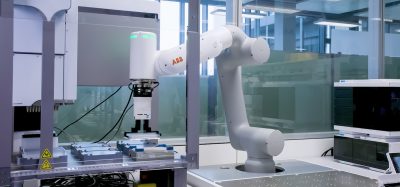An industry leader’s perspective on the complexity of scientific data
Posted: 24 October 2024 | Dr Raminderpal Singh (Hitchhikers AI and 20/15 Visioneers) | No comments yet
In this article, Dr Raminderpal Singh speaks to Janette Thomas of Five Alarm Bio for a biotech CEO’s perspective on the complexity of data faced by both large and small biotechs. Janette is on a mission to develop drugs targeting the chronic diseases associated with ageing. She shares her insights on the challenges and opportunities in the biotech sector, particularly for early-stage companies, and how the industry can better harness data and technology to drive innovation.


Janette Thomas leads a small biotech company (Five Alarm Bio)1 on a mission to develop drugs targeting the chronic diseases associated with ageing. Her company’s focus includes dementia, muscle wasting, and chronic wounds – diseases that disproportionately affect the elderly. In a recent interview, Thomas shared her insights on the challenges and opportunities in the biotech sector, particularly for early-stage companies, and how the industry can better harness data and technology to drive innovation.
Data-driven discovery
As with many early-stage biotech companies, Five Alarm Bio is highly data-driven, producing vast amounts of experimental data through cell-based assays and phenotypic screening. The company generates valuable information from imaging analyses and various biological assays, such as the scratch assay, which examines cell migration. However, managing, analysing, and leveraging this data is no easy task, especially for a small company with limited resources. “You’ve got this mass amount of data; how do you move it around? How do you even access it easily? And then, what do you do with it?” she explained. This challenge is compounded by the increasing complexity of biological data, particularly in imaging, which often contains hidden insights that are difficult to extract without advanced computational tools. In addition to data storage and access, Thomas pointed out a deeper problem: small companies may not have the expertise or resources to fully utilise the rich datasets they generate. “We know there’s a lot of information within that data, but we don’t always have the skills to know how to use it,” she said, reflecting a broader industry trend in which smaller biotechs struggle to fully capitalise on their experimental results.
The potential of automation
Thomas sees great potential in automation and AI, which could help small biotechs unlock the hidden value in their data. “Automation would make even basic tasks like measuring our key parameters faster,” she noted. Furthermore, AI could provide insights into complex data patterns that humans may overlook, offering a force multiplier effect for companies with limited manpower. However, the practical implementation of these technologies remains challenging. Many small biotechs do not have the resources to invest in sophisticated AI tools or extensive automation systems. This creates a paradox: while AI and automation could revolutionise their operations, they often require significant upfront investment that small companies cannot easily afford.
When it comes to working with vendors—especially those offering AI and data solutions—Thomas emphasised the importance of a long-term relationship and understanding the company’s specific needs. “It’s not just about today. It’s not a transaction,” she explained, stressing that vendors need to take a big-picture view of how they can offer value beyond immediate solutions. Vendors often approach her company with generic solutions that may not align with their actual milestones or challenges. For her, the best vendors are those who have a deep understanding of the industry and can teach her something new. “If they’re really good, they know my biases and can explain how they can benefit us,” she said. The key, she believes, lies in communication and building trust over time.
Significant IP value
Thomas is acutely aware that the data generated by biotechs holds significant intellectual property (IP) value. “The data gives us a significant amount of IP,” she said, adding that while her company is focused on extracting the immediate value they need from their experiments, there may be untapped potential hidden in the data. This presents a dilemma: how to store and manage data so that it remains useful in the long term, even as the company’s resources grow and new technologies become available. In larger biopharmaceuticals, these challenges are often addressed through large-scale projects with significant funding. But smaller biotechs must navigate the same complex data issues with far fewer resources, making strategic decisions about what to prioritise and how to maximise the long-term value of their data.
Janette Thomas’ insights offer a glimpse into the complex landscape of early-stage drug discovery. For smaller biotechs, the path to innovation is fraught with challenges, from managing vast and complex datasets to navigating vendor relationships and adopting new technologies. However, by focusing on long-term value and maintaining an open-minded approach to new tools and methods, companies like hers are well-positioned to make significant breakthroughs in the fight against ageing-related diseases.
Reference
1 Five Alarm Bio. [cited 2024 Oct 17]. Available from: http://fivealarmbio.com/
About the author
Dr Raminderpal Singh


Raminderpal is currently the Global Head of AI and GenAI Practice at 20/15 Visioneers. He also founded and leads the HitchhikersAI.org open-source community. He is also a co-founder of Incubate Bio – a techbio providing a service to life sciences companies who are looking to accelerate their research and lower their wet lab costs through in silico modelling.
Raminderpal has extensive experience building businesses in both Europe and the US. As a business executive at IBM Research in New York, Dr Singh led the go-to-market for IBM Watson Genomics Analytics. He was also Vice President and Head of the Microbiome Division at Eagle Genomics Ltd, in Cambridge. Raminderpal earned his PhD in semiconductor modelling in 1997. He has published several papers and two books and has twelve issued patents. In 2003, he was selected by EE Times as one of the top 13 most influential people in the semiconductor industry.
For more: http://raminderpalsingh.com; http://20visioneers15.com; http://hitchhikersAI.org; http://incubate.bio
Dr Janette Thomas, CEO at Five Alarm Bio Ltd


Dr Janette Thomas has a background in Biochemistry research gaining a PhD at Leicester University and post-doctoral research at Cambridge University, after which she has had 25 years of pharmaceutical drug discovery and development experience at large Pharma (GSK) and small biopharma companies. She has been instrumental in the early strategy and growth of several companies, latterly including Horizon Discovery (now a public company), Director of International Operations at Atlantic Healthcare plc. She founded Pellis Care Ltd and in 2022 joined Five Alarm Bio Ltd as CEO. As a member of leadership teams, Janette has broad experience in developing company and product R&D strategy, leading research programs and has published journal articles, book chapters and is an inventor on granted patents.
Related topics
Artificial Intelligence, Big Data
Related organisations
20/15 Visioneers, Five Alarm Bio, HitchhikersAI








